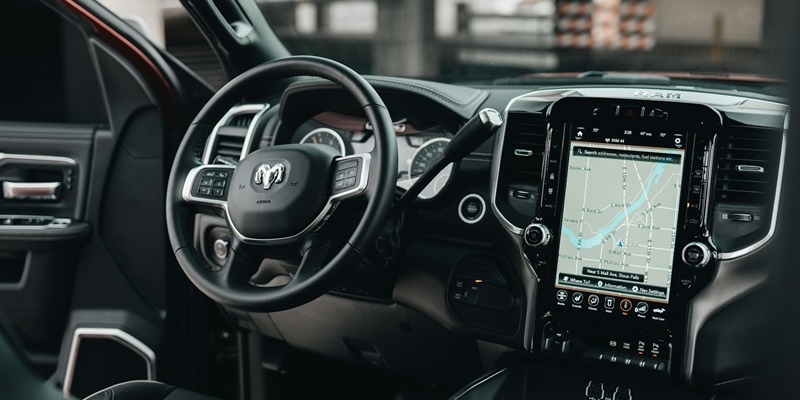In an era where technology propels the automotive industry forward, a partnership between tech powerhouse Microsoft and navigation expert TomTom has given birth to a game-changing innovation. They have introduced an AI assistant by the name of “Tommy” which integrates seamlessly with the in-car navigation system. However, Tommy does more than provide directions; it represents a significant leap in how drivers interact with their vehicles. This AI assistant fuses cutting-edge artificial intelligence with sophisticated mapping technology to offer a richer, more intuitive driving experience. As drivers navigate, Tommy provides context-aware suggestions and assistance, effectively becoming a co-pilot. The collaboration aims not only to make navigation more seamless but also to enrich the driving experience with an intelligent companion that anticipates needs and enhances decision-making on the road. This integration marks a milestone for driver assistance, setting a new standard for what we can expect from our vehicles’ navigational capabilities.
The Advent of Generative AI in Navigation
Integrating “Tommy” into Daily Commutes
In a groundbreaking advancement, “Tommy” marks a new era for driver experience by incorporating generative AI like Microsoft’s Azure OpenAI into vehicles. This AI transcends traditional navigation, offering a customized driving environment that adapts not just to the user’s preferred routes and schedules, but also to their moods and behaviors. It relies on sophisticated language models and extensive traffic data to communicate with and provide tailored advice to drivers. As “Tommy” interacts and learns from its users, it evolves, crafting journeys that are increasingly harmonious with the driver’s lifestyle. This prospect of a dynamic, evolving interaction differentiates “Tommy” from conventional navigation tools, promising drivers a more intuitive and enjoyable travel companion. With each trip, “Tommy” aims to redefine the driving experience through personalization.
Elevating In-Cabin Experiences
Tommy is set to transform the in-car experience by introducing an advanced “emotional layer” to vehicle technology. With voice command responsiveness, Tommy can fine-tune the drive according to personalized driver settings and even manipulate car functions to align with the occupant’s mood. Picture a smart system that not only leads you to your favorite cafe but also remembers your previous orders and tailors the in-car atmosphere, with your preferred tunes humming in the background. The power of generative AI models equips Tommy with the ability to grasp subtle preferences and predict necessities, providing a seamless and delightful journey every time. This intelligent system doesn’t just navigate; it enhances the entire ride by syncing with your life, learning as you go, and ensuring comfort and satisfaction on the road. Tommy is more than a driving assistant; it’s a companion that knows you, making every car trip a personalized experience.
Public Perception and Safety Considerations
Embracing AI or Guarding Against Overreliance?
The advent of AI technology in vehicles, exemplified by “Tommy,” symbolizes progress to many, offering ease of use and a touch of amusement or companionship during journeys. This innovation stands to streamline how we interact with our cars, infusing both convenience and efficiency into the driving experience. Nonetheless, the integration of such AI raises crucial debates about our growing dependence on smart technologies and the potential decline of fundamental navigation skills cultivated over generations. With this shift toward intelligent systems, concerns are also magnified regarding privacy, as the effectiveness of devices like “Tommy” hinges on the collection and sharing of user data. As opinions diverge, the conversation around the role of AI in driving becomes increasingly complex, blurring the lines between technology as a utilitarian ally and an invasive force encroaching on personal skills and data security.
Safety and Distraction: A Delicate Balance
Microsoft and TomTom are collaborating to create “Tommy,” an AI designed to be a conversational assistant in cars. This technology aims to blend seamlessly with the driving experience, though there’s concern about whether it could distract drivers. Engaging with an AI like Tommy could potentially lead to cognitive overload during critical moments that require full attention. However, proponents believe that with thoughtful design and regulation, such systems could actually improve drivers’ situational awareness.
The balance between the benefits of a “friendly” assistant and ensuring driver safety is delicate. As “Tommy” is still under development, its ultimate impact on automotive interaction remains to be seen. Whether it will mark a revolution in in-car AI or serve as a warning about the limits of automation is a question that can only be answered in time, with safety as the paramount consideration for its integration into the mainstream.

